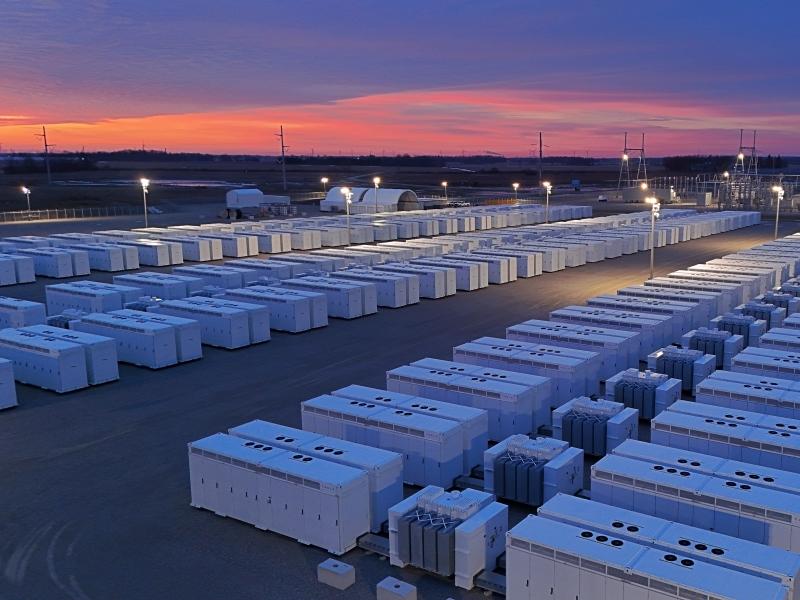
A partnership between carbon-negative concrete company CarbiCrete and Quebec-based insulated concrete block producer Isobloc is “a perfect marriage of two sustainable solutions,” according to CarbiCrete’s chief marketing officer Yuri Mytko.
Isobloc will be manufacturing its energy-efficient insulated blocks with concrete made by CarbiCrete’s production partner Patio Drummond, based in Drummondville, Que. The combined product, Isobloc ZERO, is geared toward users of concrete masonry.
The concrete is manufactured using a process developed and licensed by Montreal-based CarbiCrete. Rather than use carbon-intensive cement as a concrete ingredient, the company designed a way to use steel slag, an industrial by-product, which traps carbon in the blocks.
An Environmental Product Declaration found CarbiCrete's concrete masonry units produce 11.7 kilograms of carbon dioxide equivalent per cubic metre of concrete, which is 20 times lower than the industry average.
With its technology, CarbiCrete aims to address emissions from the cement and concrete industry, one of the world's largest polluters. Research cited by The World Economic Forum suggests it accounts for approximately eight per cent of the world's greenhouse gas emissions.
The partnership is combining a carbon removal solution with blocks used to make sustainable buildings, a double win for the environment according to Mytko, who spoke to Sustainable Biz Canada.
“We’ve got two Quebec-based sustainable construction solutions that complement one another perfectly . . . The sustainability aspect is only increased when you use a cement-free concrete element to that block.”
It also marks the first time CarbiCrete’s technology has been used for an insulated concrete block.
Making better concrete blocks
Founded in 1985 and based in Mascouche, a northern suburb of Montreal, Isobloc makes insulated concrete blocks which have gaps filled with the plastic polystyrene as opposed to grout and rebar. This improves energy efficiency because of the insulating qualities and the lack of thermal bridges, Mytko explained. Additional bonuses are soundproofing and the lighter weight.
On Isobloc’s website, the company says its insulated blocks can cut energy use by 20 per cent and can generate up to 35 per cent savings against a comparable composition, while being 100 per cent recyclable.
There is an established market for a sustainable insulated concrete block, Mytko said. Builders can receive sustainability credentials such as points toward LEED certification (a green building standard) by using carbon-negative materials.
Isobloc ZERO meets the standards for concrete performance and building code requirements as ordinary concrete, he added.
Expected users of Isobloc ZERO are the typical customers of concrete masonry units: masons, structural engineers, architects and general contractors. The product is ideal for exterior walls and also works for interiors because of its soundproofing qualities, Mytko said.
He said Isobloc ZERO has already gained the attention of the masonry industry, but could not verify if there are any confirmed sales or how Isobloc would price the product.
CarbiCrete's partnerships
Outside of Quebec, CarbiCrete has forged a partnership with Port Colborne, Ont.-based Canal Block. CarbiCrete’s technology has been recently retrofitted into Canal Block’s masonry plant, Mytko said, and the facility will begin to produce blocks in the coming weeks to serve the Ontario market.
CarbiCrete has also collaborated with Aecon and Lafarge Canada on constructing a low-carbon building, and with Meta (Facebook's parent company) to finance the installation of CarbiCrete equipment at Canal Block.
Earlier this year, CarbiCrete unveiled its first product for sale in the U.S.: the CarbiFlo grid pavers made by Patio Drummond and offered through Maine-based company Gagne & Son.
Additionally, another announcement should be expected this week for a partnership that involves deployment of CarbiCrete in Europe, Mytko said.
The company had previously announced it was engaging with a brand of French construction material producer and CarbiCrete investor Saint-Gobain to deploy the technology.










